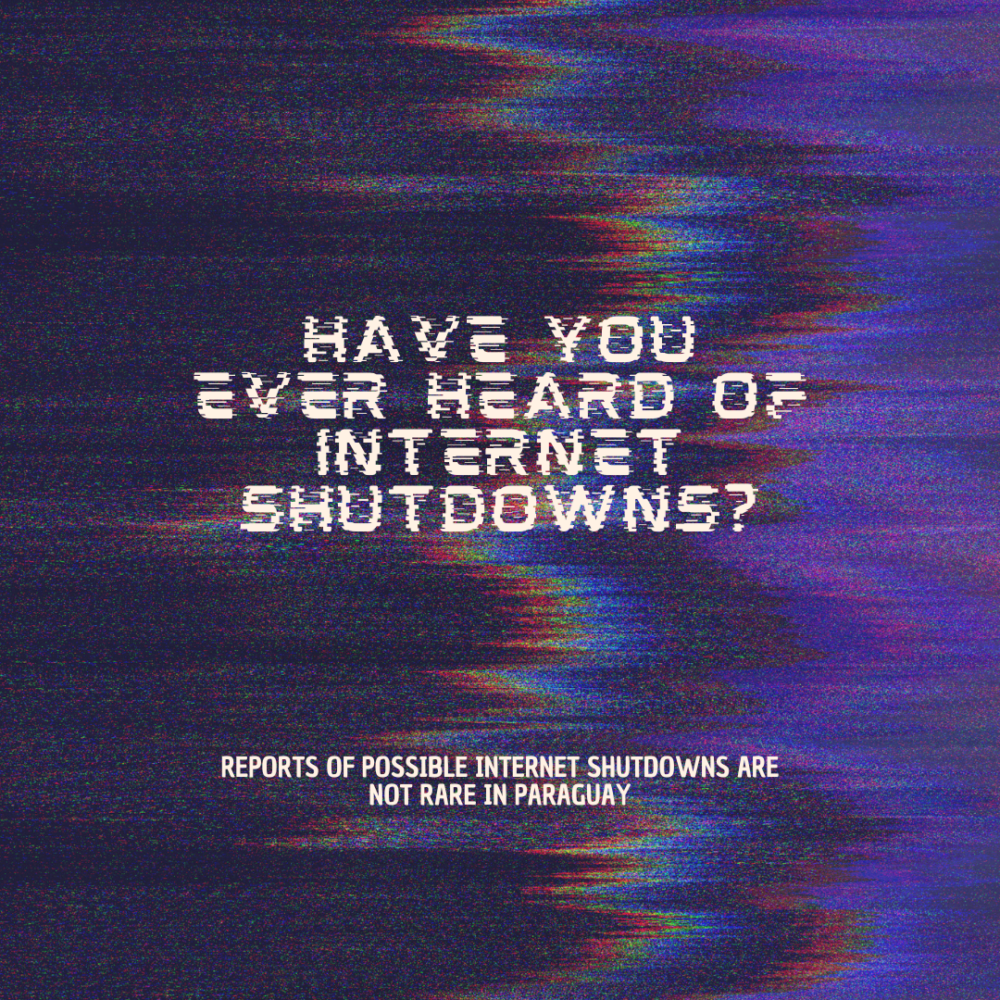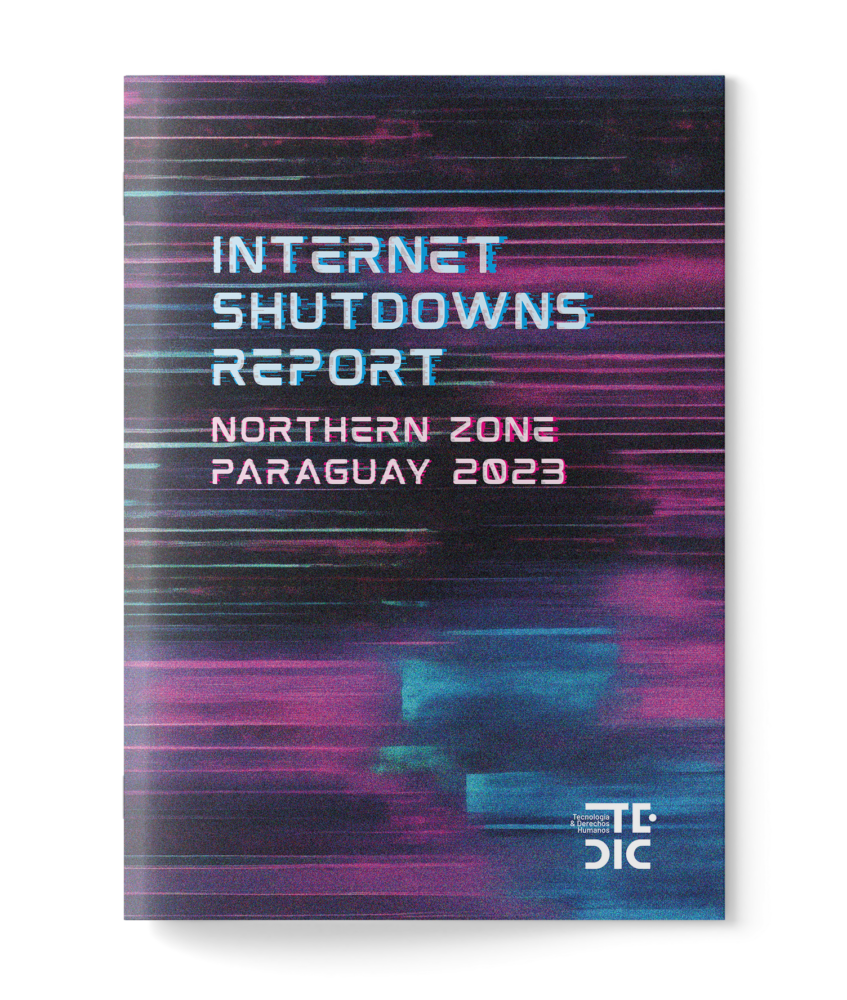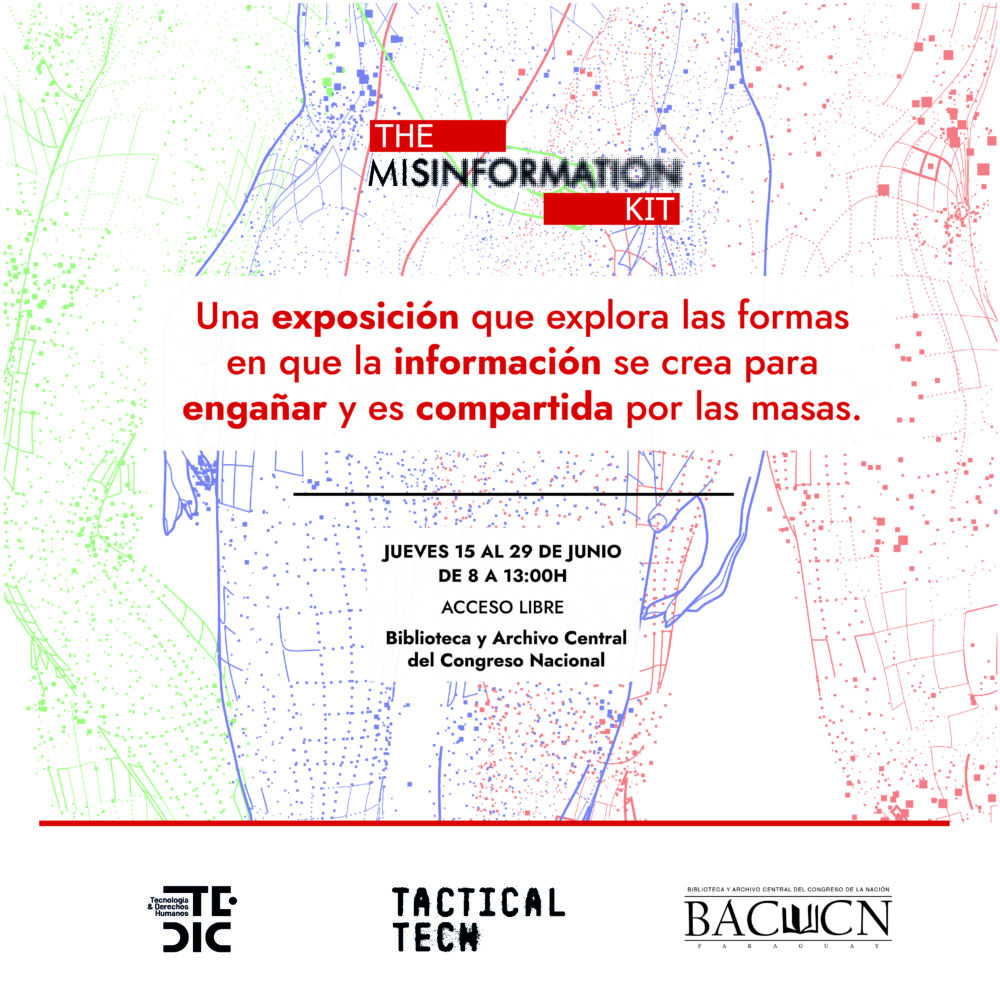
The use of digital technologies in the context of security is a rising trend. States employ a rhetoric of security to implement digital technologies. These range from the use of drones and facial recognition cameras on the streets and state borders to the use of surveillance software (spyware) to fight crime.
Along the same lines, there is an undeniable tendency to implement what is colloquially known as “Internet Shutdowns”1. This is under various arguments that appeal to the containment of civil disturbances and the preservation of the internal security of the States.
Internet Blackouts in Paraguay?
Discussion and reports of possible internet shutdowns are not an uncommon issue in Paraguay. In 2021, the Coordinator of Human Rights of Paraguay (CODEHUPY) conducted an observation mission in the Northern Zone of the eastern region of Paraguay (departments of Concepción, San Pedro and Amambay).
Among the numerous findings of human rights violations by the Joint Task Force (FTC)2, the CODEHUPY documented possible internet outages through testimonies from people in the area. From TEDIC, we systematised these complaints in a report sent to the Office of the United Nations High Commissioner for Human Rights and in alliance with the organisations APC and Derechos Digitales.
We also identified the need for a specific study to understand these testimonies in greater detail. After a year of work, we officially launch a report that seeks to shed light and deepen on a little-explored subject in the country. Through interviews with inhabitants of the area and network monitoring through the Open Observatory on Network Interference (OONI)3 and the Internet Outage Detection and Analysis (IODA)4 platforms, a series of findings were documented that reflect an enormous precariousness to varying degrees in the North Zone of the country, and that can positively contribute in making the existence of internet shutdowns. Among the main findings of the report:
- There is no legal protection or basis for generic restrictions within the current Paraguayan legal framework that would hinder or prevent internet access.
- There is an extremely high rate of economic precarity in the Northern Zone with regard to access to basic infrastructure, including Internet access. Interviews with
- members of communities in the region indicate that this degree of economic precarity normalizes the lack of internet access in the area and has a direct impact on people’s awareness of the importance in documenting and denouncing any type of signal outage.
- It is not possible to affirm or deny an Internet blackout in the area based on the data collected. The lack of data in international repositories prior to the year 2022 makes it difficult to technically monitor what has happened in the area in the last five years. This is contrasted with different testimonies in the area. Some affirming a degree of correlation between signal drops and FTC interventions, and others pointing out the complexity of even knowing when there is an operation in progress.
- The internet providers consulted (Tigo and Claro) are unaware of the reports of internet outages systematized in the CODEHUPY report and certain high-circulation newspapers. They also deny any coordinated action with the FTC for this purpose. It was impossible to get a response from the providers Personal and Vox.
- The FTC denies any kind of action within the context of its operations and for the purpose of cutting off the signal in a given area.
- Preliminary data collected in the OONI Observatory report points to a test of the reproductive rights website Women on Waves that presented a “connection reset1” error in Nucleo (AS27895) when tested on April 24, 2023, which could be indicative of censorship implemented by the ISP (ISP Personal is part of the Nucleo S.A company). However, the site was only tested three times on that network in the last month, and the measurement that presented the connection restart error could be a false positive. Further testing of the site is required to investigate its possible blocking.
- Findings in the IODA repository for 2022 (outside the CODEHUPY report period) point to potential signal drop in FTC performance areas, but they are not conclusive and should be contrasted with testimonies of local inhabitants of the Amambay department.
To access the report complete, enter here.

Thanks
This report was carried out collaboratively with various institutions. We thank the Thomson Reuters Trustlaw program, the OONI international project and the Karisma Foundation’s K+LAB for their contributions to the legal and technical sections of this report. We also thank the CODEHUPY, SERPAJ and different rural organisations in the Northern Zone for all their support in visiting the North Zone of the country.
1The #KeepItOn initiative of the Access Now organization defines internet blackouts as a“Intentional disruption of the Internet or electronic communications, making them inaccessible or effectively unusable to a specific population or within a location, often to exert control over the flow of information”.
2The Joint Task Force is a unit of the Paraguayan Armed Forces. It is made up of the Paraguayan Armed Forces, the Paraguayan National Police and agents of the National Anti-drug Secretariat (SENAD). It is present in San Pedro, Concepción and Amambay. It seeks to end the strategic plan of the Paraguayan People’s Army (EPP) guerrilla group, mainly in the north of the country.

 The Glass Room Exhibition: Misinformation Edition
The Glass Room Exhibition: Misinformation Edition